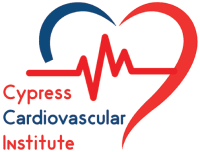Heart attacks are often perceived as primarily affecting men, but cardiovascular disease is the leading cause of death among women in the United States. Women may experience different signs and symptoms compared to men, which can sometimes lead to delays in diagnosis and treatment.
Recognizing these differences is critical because early intervention can save lives. This blog educates women on the common and subtle signs of a heart attack, risk factors, and the importance of seeking immediate medical attention.
1. Understanding Heart Attacks in Women
A heart attack, or myocardial infarction, occurs when blood flow to a part of the heart is blocked, often due to a clot in the coronary arteries. The lack of blood and oxygen can damage or destroy heart muscle if not treated promptly.
In women, heart attacks may present differently than in men. While chest pain or pressure is common, women are more likely to experience atypical symptoms, making awareness essential.
2. Common Signs and Symptoms in Women
Women may experience a variety of symptoms during a heart attack. Chest discomfort or pressure is common, often described as tight, squeezing, or burning. The pain may be mild or come and go. Some women feel discomfort in the arms, back, neck, jaw, or stomach. Shortness of breath can occur with or without chest pain. Fatigue is also frequent, sometimes lasting for several days. Nausea or vomiting may accompany other symptoms, while lightheadedness or dizziness can indicate reduced blood flow to the brain. Cold sweats can appear suddenly without explanation. Unlike men, women do not always experience intense chest pain, which can make it harder to recognize the severity of the situation.
3. Less Recognized Symptoms
Some heart attack signs in women are subtle and often mistaken for less serious issues. Indigestion or heartburn-like discomfort may occur. Pain can appear in the jaw, throat, or upper back. Women may also feel unexplained anxiety or a sense of impending doom. Sleep disturbances or unusual fatigue can be warning signs as well. Awareness of these atypical symptoms is important. Women experiencing any combination of these signs should seek medical care immediately.
4. Risk Factors Specific to Women
Certain factors increase a woman’s risk of having a heart attack. Age is important, as risk rises after menopause. High blood pressure and high cholesterol can damage arteries, while diabetes increases cardiovascular complications. Smoking is particularly harmful, greatly raising the risk of heart attacks. Obesity and a sedentary lifestyle can also contribute by elevating blood pressure and cholesterol. Family history of heart disease plays a role, making genetics a key factor. Pregnancy-related complications, such as preeclampsia or gestational diabetes, can increase long-term heart risk. Understanding these risk factors helps women take proactive steps to reduce their risk and monitor for warning signs.
5. When to Seek Emergency Care
Immediate action is critical if a heart attack is suspected. Women should call 911 or emergency services rather than attempting to drive themselves to a hospital. Early treatment improves survival rates and reduces heart muscle damage.
Do not ignore symptoms even if they seem mild or intermittent. Prompt evaluation at a medical facility, such as Cypress Cardiovascular Institute, can ensure timely diagnosis and treatment.
6. Prevention and Heart Health Strategies
While some risk factors are unavoidable, many can be managed through lifestyle and medical interventions:
- Maintain a heart-healthy diet rich in fruits, vegetables, whole grains, and lean proteins.
- Engage in regular physical activity, aiming for at least 150 minutes of moderate exercise per week.
- Avoid smoking and limit alcohol consumption.
- Monitor blood pressure, cholesterol, and blood sugar levels regularly.
- Manage stress through relaxation techniques, mindfulness, or counseling.
- Attend routine medical check-ups and discuss cardiovascular risk with your healthcare provider.
Preventive care is key, especially for women with multiple risk factors or a family history of heart disease.
7. Final Thoughts
Heart attacks in women often present differently than in men, making awareness of signs and symptoms essential. From chest discomfort to subtle fatigue, recognizing early warning signs can save lives. Women should not ignore atypical symptoms and must seek immediate medical attention when in doubt.
If you are concerned about your heart health or experience any warning signs, visit Cypress Cardiovascular Institute – a center dedicated to heart, vein, and vascular health serving Cypress and Greater Houston. Early evaluation and proactive care are vital for maintaining a healthy heart.
Disclaimer: This blog is for educational purposes only. It does not provide medical advice or replace consultation with a licensed healthcare provider. Always speak with a qualified medical professional if you suspect a heart attack or have concerns about heart health.

